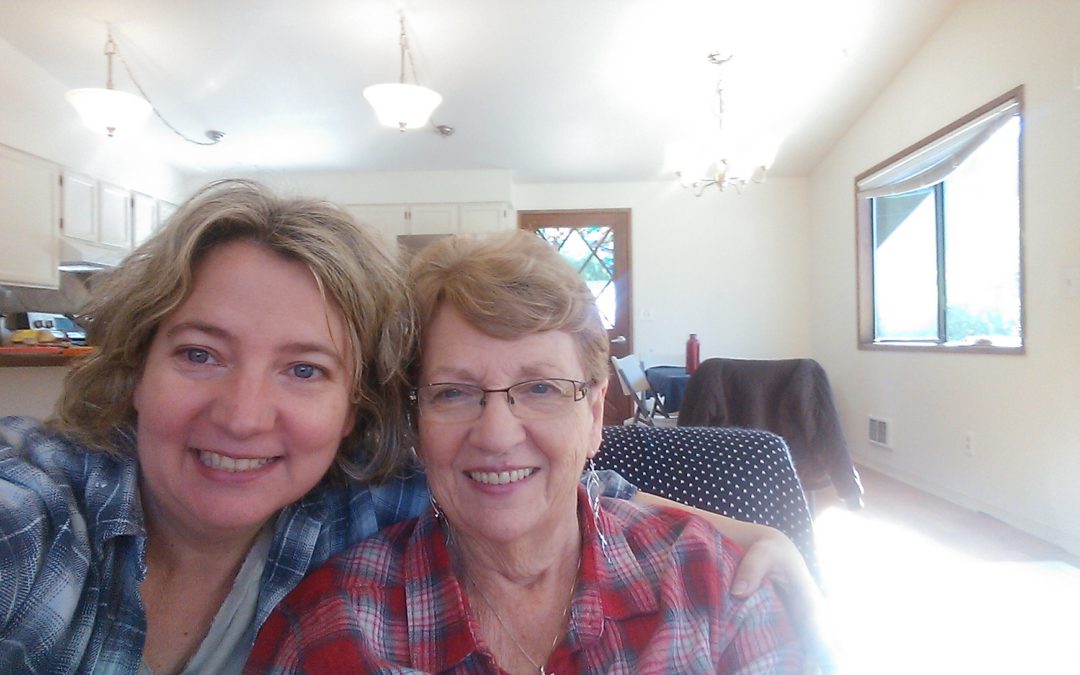
by lori | Oct 28, 2016 | Alzheimer's, Culture, Essays, Story
I lose the mom I grew up with to Alzheimer’s every day. This loss began roughly 12 years ago for me and is with me every day. Others who love her live with similar loss—we each lose her in different ways and stages.
You may see her smiling face in photos and think that the woman you knew is with me. You are wrong.
The woman with me today is someone entirely new. She’s new each day now. This woman speaks very little. She doesn’t follow conversation. She no longer sleeps poorly: she sleeps much of the time. She hasn’t known my name, or her own last name, for more than a year now. She calls dad, lovingly, “The guy.”
When Daniel and I walk in, mom usually recognizes Eva the dog first, then looks up, remembering that she loves us. Or, she at least loves us for bringing a dog to play with her. She smilingly pulls the dog and I down the hall to her dresser to show us the new bracelet or socks or sweater that the guy bought her yesterday. “He’s so good,” she often says. The love and strength that it must take to awaken with a stranger in your bed each morning? Yeah, I can’t even fathom that one yet. Its a love beyond all reason. I revere both parents more as a result.
Spoken and written language gone, mom can’t tell her stories in traditional ways, so she gets creative: using props, gestures, silence, telepathy, empathy, almost-right words, and half words. Which is cool. I love her stories now: each one is a collective haiku crafted of magic. Dad’s stories have lengthened, artfully weaving past and present together: a shawl around our shoulders.
Some days, while mom and I are walking down the grocery aisle she says to me “Hey! I really like you.” And I flush, flattered, knowing that she likes me as a stranger. “That must hurt,” people assume and, too often, say. But most days it doesn’t hurt. I am with a woman who likes me for me. Because of who I am in the moment. She likes me without expectations, family ties, history, or baggage of any kind. And maybe sometimes, because I just put lemon cake—a favorite of hers—in the cart. This sweet new woman likes me as a total stranger. I like her too.
Loss has shown me how “I like you” can be more powerful than I love you.
Loss demonstrates that the coolest stuff is always happening around the words. Difficult to see at a distance, while distracted, or worrying. Loss stills me into better noticing.
This year, I notice that staying with loss has immunized me considerably against the promotion of the always-winning, always-first (and ultimately violence-inducing) cultural myth and its associated orange-haired icon that flashes out at me from all the screens. Those who scream that always winning makes us strong and powerful ultimately haven’t got a clue. Been there. So very glad to be done with that.
If you want to feel strength, gently stay with your loss or a least visit on a regular basis. Listen. Hold her hand. Slow down with her. Be her friend. Walk into and through anger with her: into and through hate. Weep. Breathe. Go for a walk. Accept help from nature and cool people. Eat healthy foods. And put an occasional lemon cake in the cart to mend your hearts. That, friends, is what deep winning feels like. It honors loss. Deep winning eases minds and lifts hearts in all directions around it. Deep winning is hearing “Hey, I really like you.” from a total stranger who you—lucky you—already love like family.
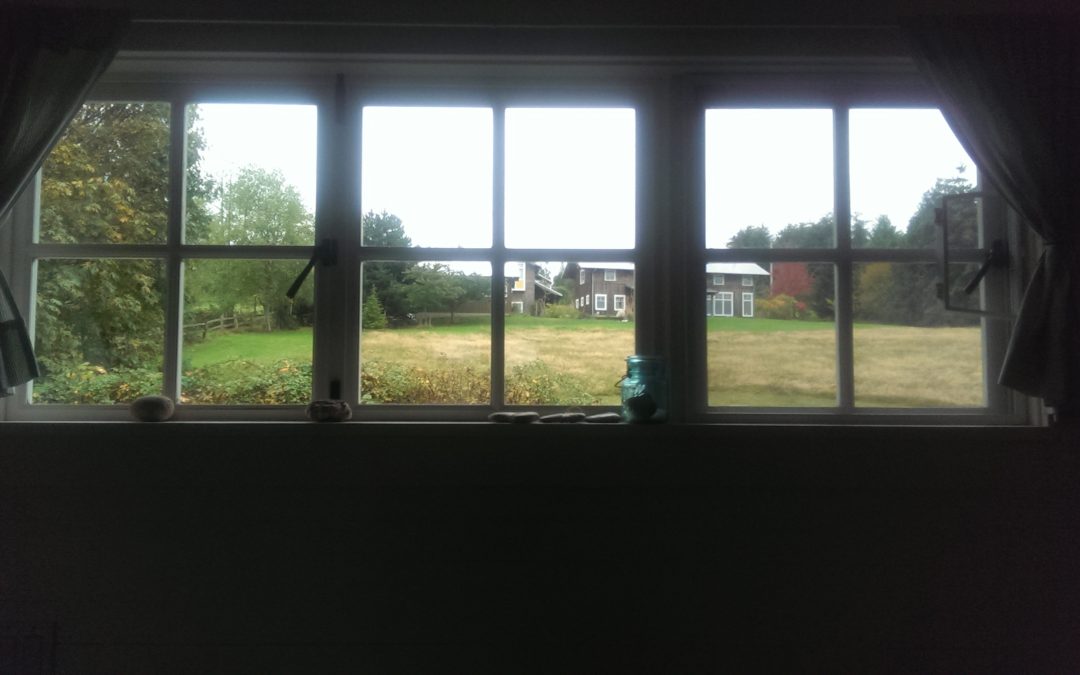
by lori | Oct 17, 2016 | Beauty, Content, Gratitude, Here and now, Nature, Poetry, Respite
I love it when
the wind strolls in
and my meadow friends
dance and bow.
Love it when
waves rush to crash across
my ocean
where
the wide beach smiles up
where the eagles rest silent on the wind above
etch greetings sky to horizon down to me
all the way home: carried and strong.
I love it when
ears find old playground laughter between
the creaks
of empty swing sways
find playground teasing within
little sister crow’s nagging cries
following big sister eagle
back and forth
back and forth
boat house to nest
nest to boat house
boat house to nest.
Ah, little sisters.
Love it when
eyes cherish the faded flap-flapping flag
forgotten by neighbors rushing back to the city.
Cherish wind: an absent spacious presence
Cherish sand: a shattered toe-hugging
perfect imperfection.
Cherish the polished-cream beauty of driftwood.
Here books, stones, deer, and gentle evening light
invite themselves to play:
sated, triumphant, wildly creative
complete within themselves and completely inappropriate.
All silent and awkward at just the right moments.
Humans arriving here
are few
and far between.
We arrive like children
gleefully joining the chorus
certain our tiny voice is heard
among books, stones, deer, dancing warm light
heard within silence.
Or, we arrive here like grownups: certain of nothing at all.
Either way, those invited here
come to play
pulled by the sea
or some other place
where they grow quiet enough to hear the invitation.
I love that we hear the call
so everywhere, so often now
More than anything else in this world
I love dropping every last big plan I had
just to respond, in kind
to the invitation
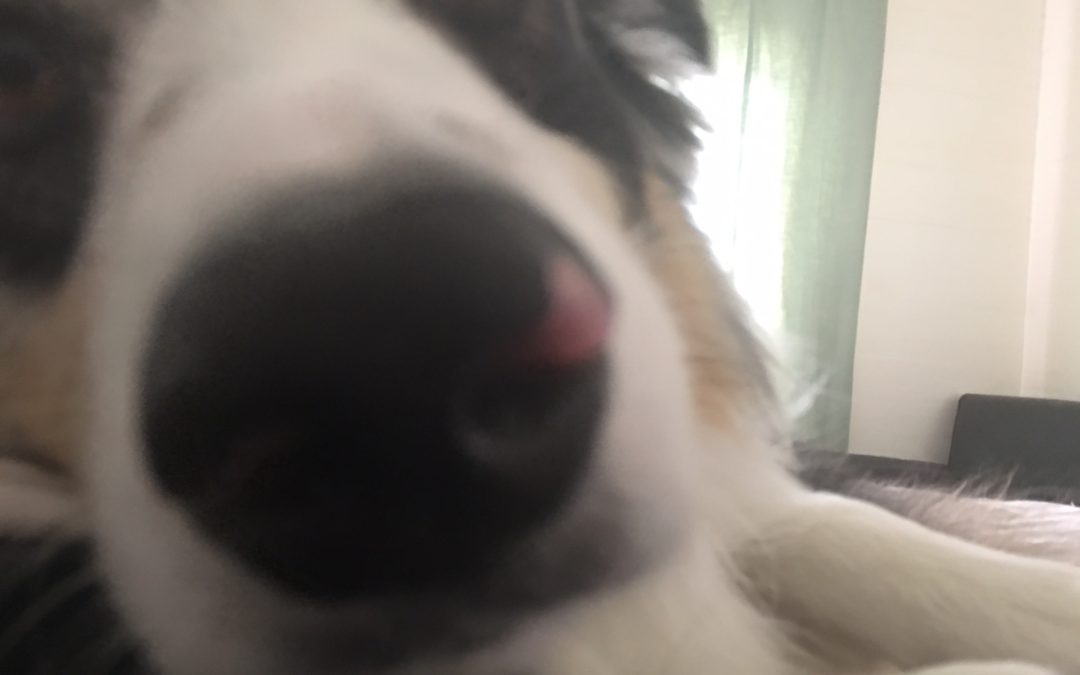
by lori | Oct 3, 2016 | Creating, Essays, Writing
Author Anaïs Nin said: “We don’t see things as they are, we see them as we are.” and “Each friend represents a world in us, a world possibly not born until they arrive, and it is only by this meeting that a new world is born.”
Today I want to say this. This woman totally rocked. With just these two sentences—one about the power of the individual and one about the power of community—she changed my world. She changed me by saying something that I didn’t know—or that I’d lost along the way—and by inviting me to remember how amazing we humans can be.
As writers, we worry about all sorts of strange things. We worry about not having enough time to write and that we’re spending far too much time on our writing. We worry about internal and external critics and national and family politics. We worry about our own over-education and also our own remarkable cluelessness in any given moment. We worry about the state of our planet, country, neighborhood, and desk. We worry about how prolific we are on any given day and month and year. Some days I think this makes us unique. Most days I suspect this just makes us human.
Today I want to say this.
It’s not the worry that lasts. (And I expect Anaïs Nin—who once wrote erotica for $1/page so she could afford to eat—would agree with me.)
What lasts is this.
We change the world.
We change the world with just two sentences. We change things as both a lens on the world and as friends and neighbors within it. I think that totally rocks.
We are more powerful than we can remember alone. How cool is that?
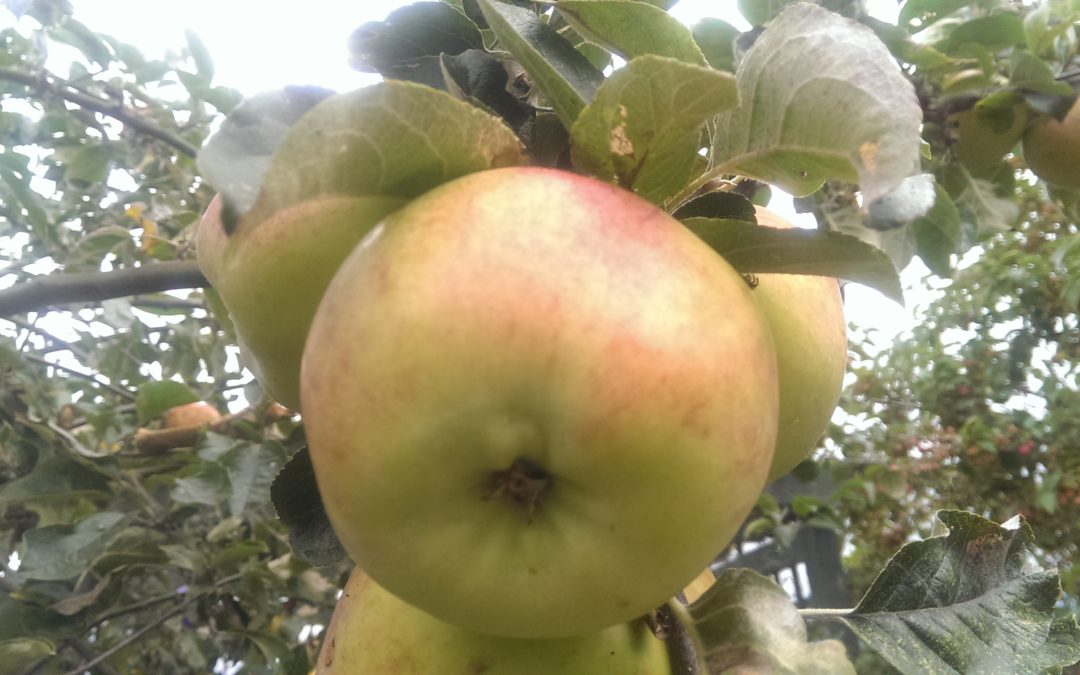
by lori | Aug 30, 2016 | Beauty, Nature, Neighbors, Poetry, Respite, Seasons
Dancing in the breeze the tree
is quiet and self-contained.
Well, self-contained
except for the sun
the soil, the birds
butterflies and bees
rain and wind
Daniel and me
pruning away dead and crossing branches
inviting more sun in to her center
lending her our shoulders and driftwood
to prop her up
after November’s storm pulled up some of her roots.
Ok, so not exactly self-contained.
What I mean is self-assured
happy with where and who she is
not fliting about like we humans do.
You know, worried, questioning everything,
wandering some days, angry, distrusting
lost…
Although, some years she is lost too:
like the two years that she was covered with
tent caterpillars
she had to have been a little worried
made almost no apples, and dropped those she did, quickly.
Her world was dark then. She hunkered down, moved within
sent no new branches toward the sun.
Anyway
my point about this apple tree is that
she’s perfect.
Beautiful, strong leaves.
Graceful, arching branches
and more than a few that prove trees get bed head too
with limbs nestled all askew against the sky at night.
Amazing, delicious apples
beyond generous in her season
(to the point that we have run out of ideas again
for things to do with all these apples
and so have our neighbors
even the deer here are drunk).
The apple tree is pure delight.
To play a small part in her full and shining life is enough.
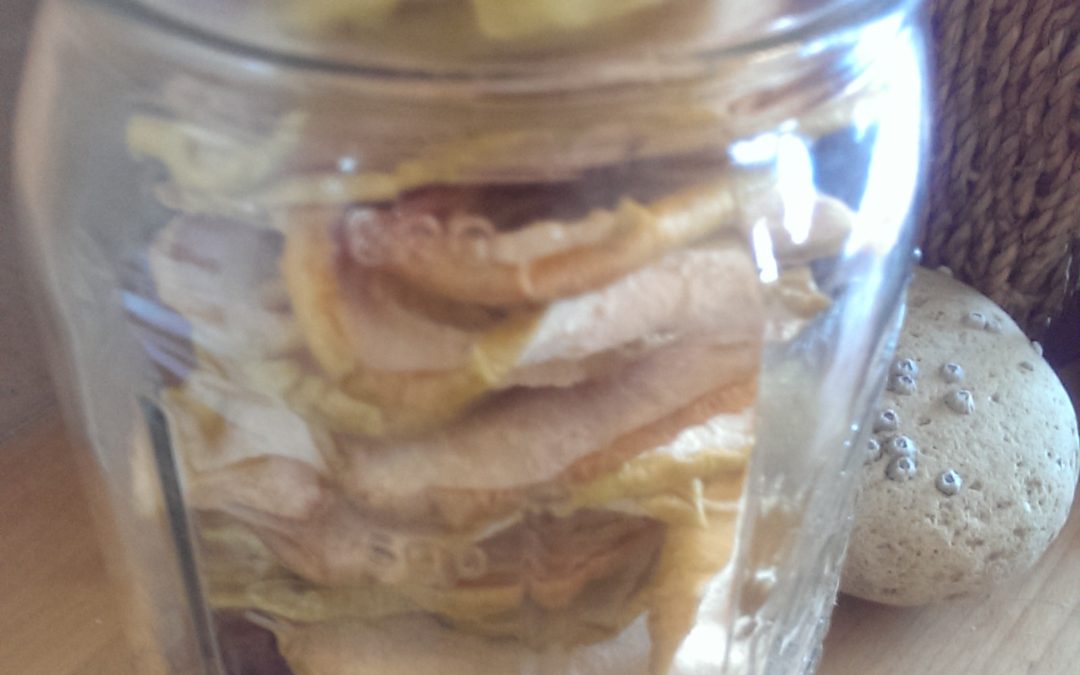
by lori | Aug 27, 2016 | Artists, Gratitude, Here and now, Poetry, Respite, Women
Every time.
Every single time
I doubt my intuition
compromise what I need
shove aside my body’s warnings
bow before convention
elevate kindness too far above truth
allow another’s needs, or society’s, to entirely drown my own
the world goes sideways, fast
I become angry
exhausted
resentful
hurt
sick.
I become the destroyer.
Behold the power of the goddess.
When will I fully trust myself?
Trust others enough to handle me as me?
Listen to my body?
Listen to her wisdom?
To myself? Here at this window.
Surely now at middle age
I should have learned by now
by now at least
that I am trustworthy and strong
by now
that my intuition speaks only truth
by now
that it’s my fear that sometimes lies
and lands me here again. Again.
Surely I should know
by now
that
you, too, can handle my truth
my messy self, my needs, especially those that appear crazy at first
those that appear to contradict yours. How silly we seem now
the people who let fear lead us.
Crazy contradictions are precursors to all life-bringing creation.
Mud to a lotus.
I rest today, at peace, here within storm’s gentle eye
covered in the mud I made myself, grinning ear to ear.
No tom boy.
No victim.
Creator.
I apparently needed just one more example.
Laying sick again, in bed, on this beautiful and perfect August weekend day
while others brunch, slightly worried about she who takes cover at home.
Don’t worry about me. I can brunch another day.
I am content here, now, learning the lessons I insist on teaching myself until I get it.
I am stubborn. Thank god.
We become idiots when we don’t trust ourselves. Destroyers of selves and of worlds.
I was an idiot. Again.
Hello again
humility and gratitude
my oldest, dearest friends.
And well played, self.
Well played.
Too much humility is annoying as shit.
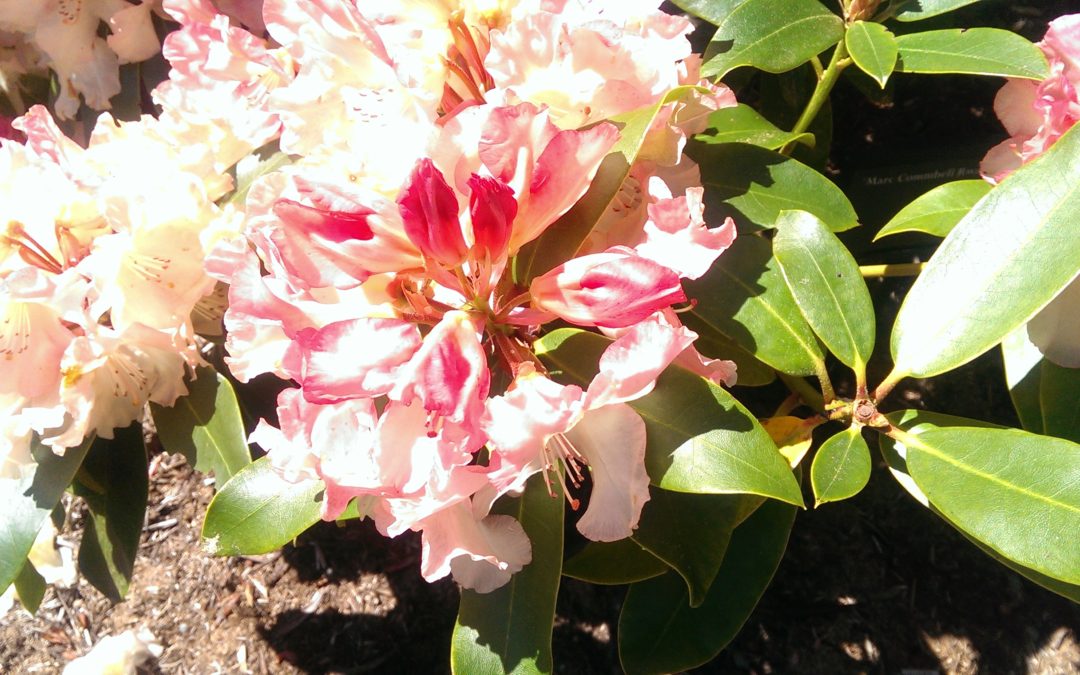
by lori | Aug 17, 2016 | Aging Gratefully, Artists, Beauty, Content, Gratitude, Grief, Love, Poetry
Warm sun pools and shines more brightly in your home
Why is that?
worn beckoning rugs and life-soft chairs
a sentinel portrait
rich green and red dirt-colored artifacts nestled
within white walls of recent pain.
Witness dancing dust across
sunbeams upstairs,
the bird in the kitchen,
your crazy dogs at play in the yard.
Most fairies here are somber yet
there is heart even joy
in those faces and those fucking cool guitars, Jesus,
and the tools, and the found things,
and the workshop, and the garage, and
in the art, art everywhere, far too content to be clutter
far more useful than things designed only for use.
The love here isn’t just palpable.
It knocks you down. It feels
like your missing tooth and bloody face
shining out from pure bliss.
It’s a sweet, well-caught ball at the fence.
Doors and windows shift widely open for these souls.
The one still walking the dogs, still finding community,
creating art here in person
and the one moving only in sunlight
guiding his strong gentle hands
like always
then shifting to starlight to stroke his cheek
in the too-dark night.
That’s the thing about the sun at your house.
She’s still with you in grief and at 4 a.m.
That’s the thing about your art. It’s still with me
here in grief and at 4 a.m. as
I whisper “Thank you” to the darkness—
uncertain, still, about who…
which who is it
that I thank?
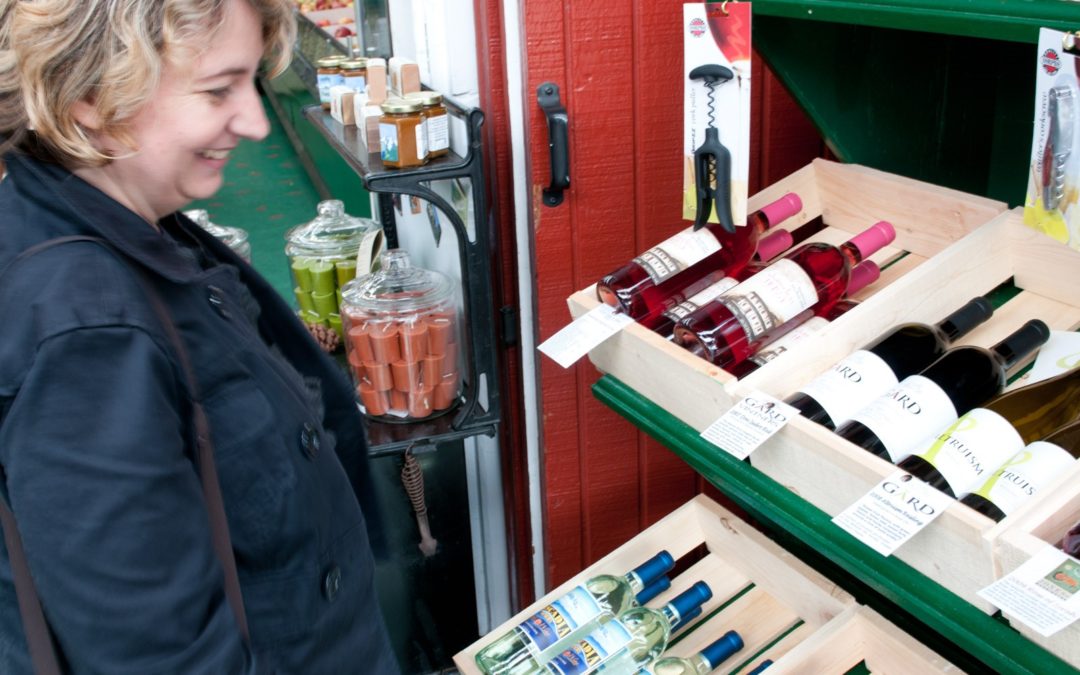
by lori | Aug 5, 2016 | Artists, Beauty, Dragons, Here and now, Poetry, Work
Poetry isn’t what I was taught in middle school:
rules and stilted contained lines written by long-dead rich old white dudes?
Bleh.
(I am not my friend Knox who makes old white guys so sexy.)
Poetry is living your artist statement.
Whether that means
saying yes to the camera
paint brush and chalk
wood and stone and paper
canvas, soil, and fiber
mentoring, teaching, parenting
the movement of your body
the call of the stage
or those Goddamn lovely words
back again
stealing berries off your fruit-laden trees
like birds and naughty fairies.
My sister
paints in children
between softly tender moments
the bright fire of unrelenting toddler chaos
slowing down for illness
and her calling education.
Another emerging master here grows poems in the garden
free verse in rising bread
you feel iambic pentameter
touching the hand-laid brick walkways in her yard: the scales of her skin
strong witness to the painful emergence
of open, wounded, pure bad ass presence. Leaves me speechless.
Nobody told them they are dragons.
Who on earth possibly even could?
Language isn’t wild and wide and beautiful enough yet.
Mom dances in laughing kindness deep at the heart of loss.
Dad co-creates in matching laughter and detailed, precise care.
Eva dabbles in the frisbee. Joe in body puddles.
Each of Daniel’s photographs gives birth to new photographers.
So, yeah, Poetry–poetry–for me is just what life is:
food, fun, and beauty
air and water
presence, fire, and deep fucking sorrow
without purpose
and
remembering my precious self before and after Shoulds
to find my right+full place at last, here among the words
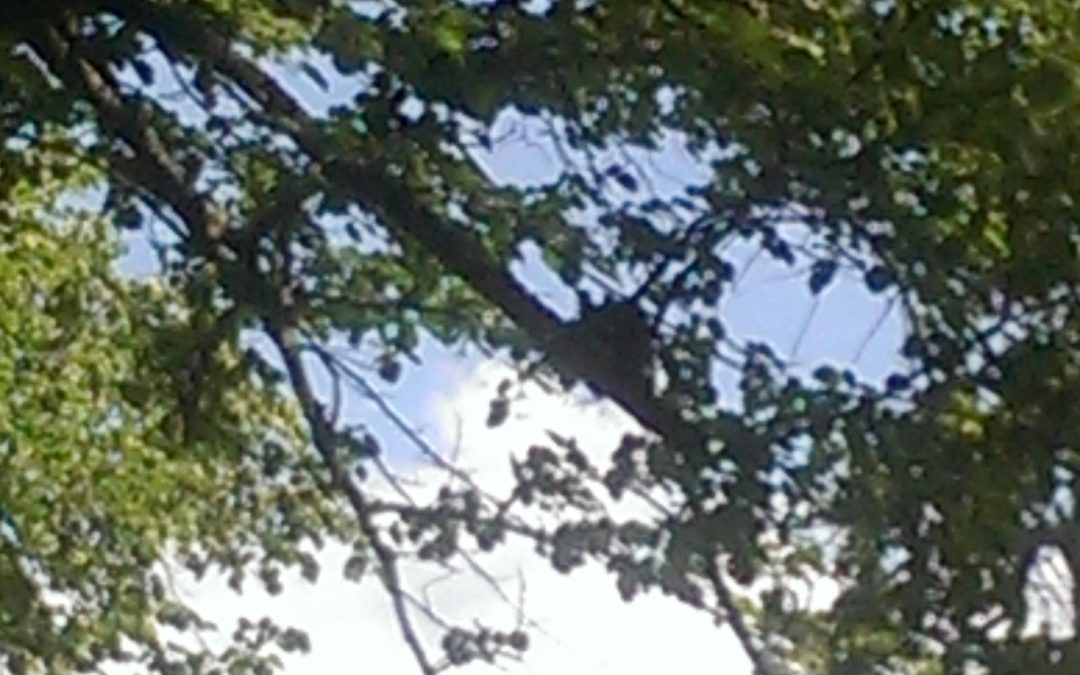
by lori | Jul 21, 2016 | Culture Shift, Feelings, Poetry, Respite
noun
Weapons, walls, blame, and technology
security is an open space within.
Security is the freedom to be a gentle sprite
at rest and moving among ever-shifting hearts.
Cross-generational laughter.
Borrowing others’ eyes to see.
Owning missteps.
Vulnerability.
Security
refuses to be a big thing.
She’s fiercely personal.
Security
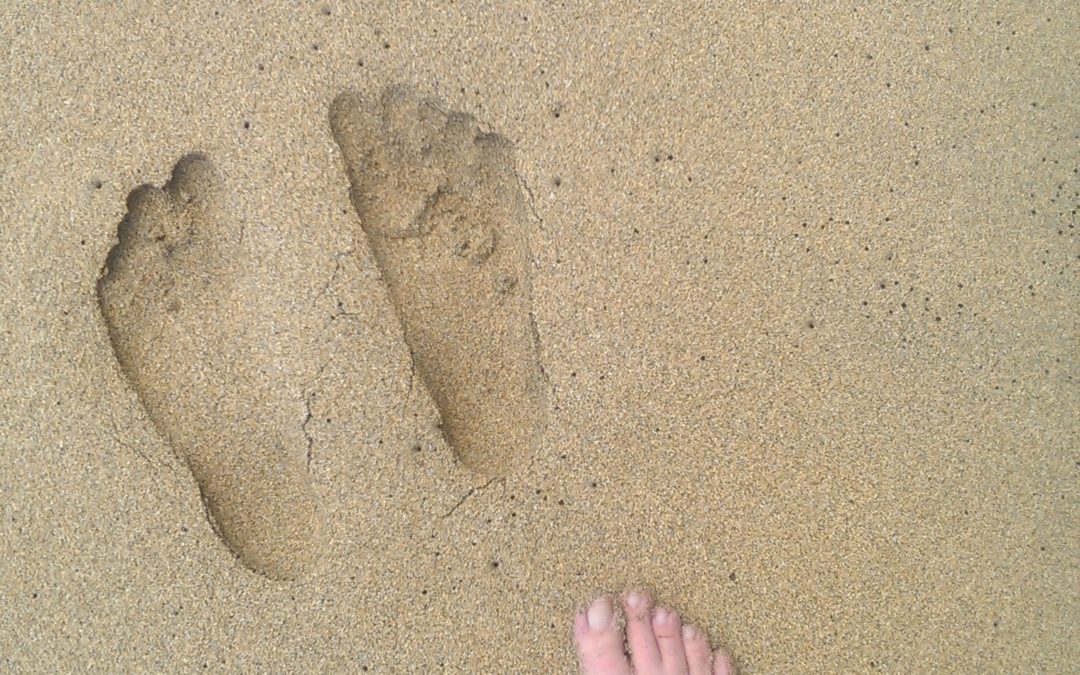
by lori | Jul 17, 2016 | Here and now, Poetry, Sentience
for Lynne
1.
There
is a voice that says
“You don’t belong here.”
that says
“Your voice is not welcome here.”
that says
“This is my home. Not yours. Get out.”
2.
Here
is another voice
that calls
“Bullshit” on the first voice
that urges “Fight”
urges “Protest”
demanding to be heard
and always
“Speak truth to power.”
and often
“Love wins.”
3.
Why
is yet another voice
saying
“Fuck all this human crap.”
and
“I really just want a hug and
to lay down in the soft grass.”
also,
“I need a nap.”
4.
Why not?
Why not
allow sweet release
lay down in the grass
take that nap
whenever she offers herself to you?
5.
Now
is presence
within which all the voices breathe
and move and heal
and move and heal and breathe
even more deeply
6.
That I am,
at moments,
all the voices
is uncertain.
That I am
presence, on the other hand—
Wow,
one infinite now,
within which everything
breathes and moves and heals—
is, when I notice it,
both strange and certain.
7.
When I am uncertain,
usually curiosity
is the best response.
That, or answering
my own “Why nots?”
with fun or awkwardness
or blessed weirdness.
When I am certain,
all response, period,
is a kindness.
1.
Unless
I’m fighting for this one, small, immediate and precious life.
Then, by all means
shut the door
kick the asshole out.
2.
regroup
heal
move
breathe more deeply
maybe listen again to Audre Lorde
hear her say again,
“Poetry is not a luxury.”
so maybe next time
you’ll feel strong enough
to invite him in
be so present
that he, too, can breathe, heal.
He is my neighbor, after all.
3.
The devil is just a myth.
I am not
4.
but I forget that.
So here I am again
following my footsteps
raising my hands up, and
turning the wheel.
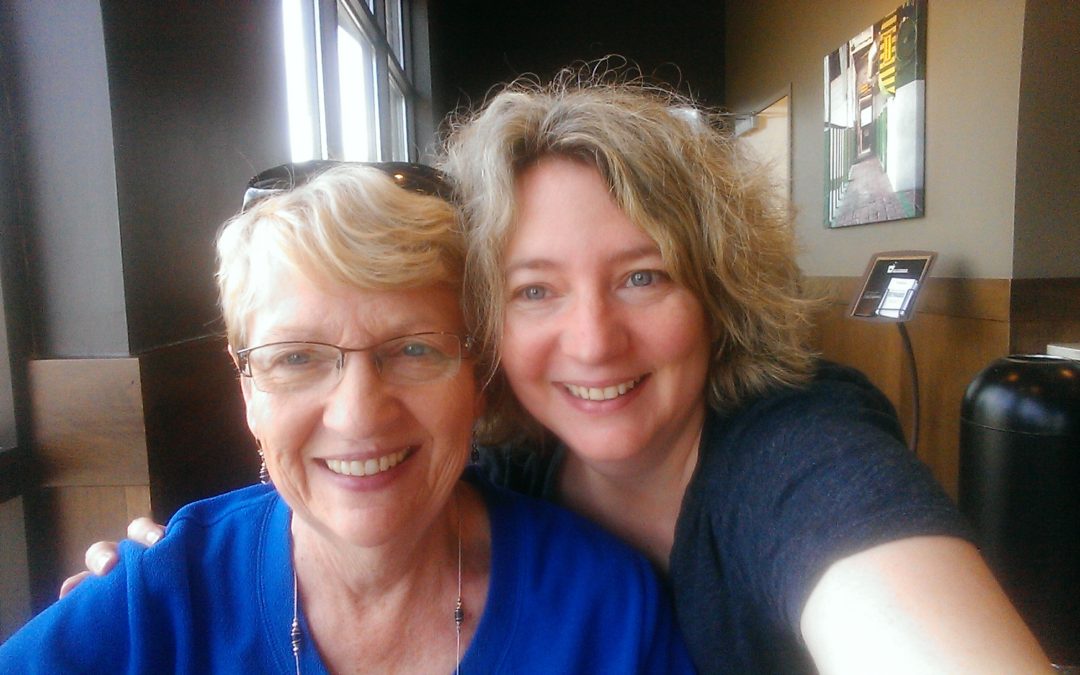
by lori | Jul 7, 2016 | Acceptance, Alzheimer's, Essays, Grace, Story
For the past three months, I’ve been an almost daily care partner for our mom, who is moving into late-stage Alzheimer’s disease. Our family has been living with the disease for a decade now. Dad has been caregiving for mom, mostly on his own, for more than a decade (because he saw the disease long before the rest of us did). I am utterly amazed by what he has done. For the past seven weeks, I was with them 24×7 as we travelled across the country and then prepared and sold their home, boat, and trailers. I finally—fully—saw what a toll this is now taking on my dad. I wish that I’d spent this intensive time with them sooner, because there are things I wish I could have helped him do for himself years ago. That said, how about I drop the guilt and just share the beautiful things I’ve learned this month?
1. Scheduling a weekly meeting or call with others like you
Care partners need a place to vent. We need a place where people can completely relate to what we’re going through with insider knowledge, a willingness to listen, and without judgement. We need a safe place to weep. A place to tell our stories of the adventures of Alzheimer’s: many of which are remarkable and amazing and some of which hurt far beyond what we think we can handle. We need this. Period. I don’t care what you have to do. Make this happen.
2. Saying “Yes!” when loved ones freely offer gifts
I learned to do this only this year. Now I see why it took me so long. To this day, as a caregiver, my dad’s go-to response to offers of gifts and help is to say either “You didn’t have to do that.” or “You shouldn’t have done that.” or “No, I’ll do that.” or, my least favorite, “You can’t do that.” (The hell I can’t buddy!) This is not the voice of the man who raised us: the man who accepted our gifts and allowed us to help do everything as kids (as the imperfectly stained fence can still attest). I empathize with wanting things done a certain way: especially in the face of a chaos-generating disease like Alzheimer’s and when your priority is protecting a family member who needs significant quiet, order, and a reliable schedule to reduce the load on their always over-worked brain. And still, from my perspective, learning to say “Yes!” to others, when gifts are offered freely and in love, is among the deepest gifts that attend this disease. Mom is the QUEEN of this. She’s a rock star. To survive as a long-term caregiver, and to thrive as a family, caregivers and care partners also have to become really good at receiving gifts and help.
3. Letting go of people unable to give you the benefit of the doubt right now
The effort required by Alzheimer’s caregivers (especially those who struggle with receiving help) is so intense that I compare it to being caught in the gravitational pull of a black hole. There is no getting away. No down time. All your energy must be directed inward to yourself, immediate-other care partners, and the person with Alzheimer’s. And this can go on for years. This means that you become a very different friend, family member, neighbor, citizen, employee, manager, worker, playmate, life partner, spouse, sibling, gardener, and human being than you used to be.
Your ability to people please, and even to work out small differences, outside your immediate small circle all but vanishes. Communication to the outside world, for example, becomes difficult and often impossible. This can hurt people around you who consider themselves part of your inner circle but who, for a while, must—for your sake—be pushed outside that circle. Some people will turn on you for doing this. Dislike you. Even hate you. They will ascribe the changes in you to all sorts of interesting things—from selfishness to stubbornness to flawed character to greed to arrogance to indifference to not really listening to them. It’s funny. People with ample free time can do a great job at fooling themselves into believing that they can judge, fix, and change other people. We can’t. We cannot suffer these same delusions: we simply don’t have the time and spare energy. Instead, we must let people go. In our case, we’ve let go of a whole lot of people across the last decade. It hurts, I’ve learned, only as long as you fight it. Only as long as you beat yourself up about being unable to fix things that you cannot change. Those who matter to your future will accept you as you are even now, they will either forgive you or see that you don’t need forgiveness, and—I’m learning now—they will find their way back to you eventually. Those who fiercely hang on to you do come back. Those who fiercely hang on to judging, blaming, or trying to change you are most likely gone from your life for good. This hurts. And yet this, too, is a blessing.
4. Recognizing that your pain is their pain
Many people—our mom included—experience a significant increase in empathy living with Alzheimer’s disease year after year. For my mom, at this point, living with the disease doesn’t appear to be the hard part. She accepts all the things she can no longer do. Including, at this point, speaking no more than one or two words at a time. She graciously accepts gifts. Gratefully allows us to help. Loves life most days. The same has become true for me, most days. Right now the hard part for her—and for me and my sister Jen—is watching my dad try to do everything himself, rush, exhaust himself, get frustrated, get angry, and beat himself up emotionally and physically about his own mistakes and completely normal exhaustion-generated human lapses in memory and judgement. When dad is happy, mom is happy. When he hurts, she hurts. When I am happy, Jen is happy. When I hurt, she hurts. Prioritizing ourselves, our health, and our well-being as caregivers and care partners IS how we best serve our loved ones. Neglecting ourselves and our needs hurts not just us: it hurts everyone connected to us.
5. Dropping guilt
Guilt is you carrying a kayak across the desert. You may have needed it in the past for something, true. And you don’t need it anymore. Your family doesn’t need it. Your community doesn’t need it. Certainly the person with Alzheimer’s doesn’t need it. Your guilt is not needed here, care partner. It is unnecessary weight. Let it go. And if you can’t, connect with places, people, and things who help…
6. Opening to nature
What we need in our lives now is more time with people, things, and places that allow us to just be who we are right now, feeling what we feel, as messy as we really are, and that/who show up without a deep need for reciprocity, fairness, correctness, and perfection. We humans may not be great at doing this, but we do at least instinctively turn to nature for help. Here is a partial list of things that are better at allowing us to just be ourselves than most humans are. Increase your contact with one or more of the following things: trees, flowers, dogs, cats, deer, fish, grass, vegetables, fruits, sky, clouds, sunshine, rain, lakes, rivers, oceans, forests, fields, moss, tree stumps, sunsets, sunrises, beaches, rocks, driftwood, soil, seashells, fog, mist, wind, leaves, meadows, birds, music, poetry, art, babies, and puddles. Also, increase your time in spaces that make you feel welcome (from an inviting sunbeam to a soft chair to a neighbor’s front porch). Spend more time in places that make you feel grounded, relaxed, needed, and home (from the presence of a dear friend or sibling to a street or park or forest that you love).
7. Opening to new community
My folks have done a great job of this the last few years, and I think it saved us all a great deal of pain. Open to becoming friends with new people. Different neighbors. Other caregivers who appear to have literally nothing else in common with you beyond caregiving. Talk to random people in stores and restaurants. To friends of friends online (or even strangers if you’re up for it). Delivery people. People in doctors’ offices. People of different ages and energy levels and cultures and backgrounds and previously imagined societal levels. Find authors and characters you’ve never encountered before. People and animals outside your comfort zone. It is these people—this new community—that is integral in helping you survive and thrive as a care partner and as a family. You need them. They save you. And unlike the old you—trapped by old beliefs and ways of thinking—this time you’ll be more fully aware of the fact that these strangers, these new-to-you friends, are saving your life. Co-creating your life. You’ll be more fully grateful for it this time. And, remarkably, in your own gratitude and openness to new community, you will save them in return. Without even trying…
8. Experiencing everyone as a leader
When she’s well rested and feeling supported, our mom makes friends with everyone and everything she meets now. Without even trying. Most days, she couldn’t care less about your size or shape or past or abilities or flaws or political affiliation or gender or age or orientation or beliefs or IQ or planet of origin. In her presence, you are beautiful and perfect as is. If you slow down, and join her in being fully present, it’s easy to see the same in her.
Last week, for example, in the middle of a large family gathering, she left the room for a while and then walked back into the middle of the kitchen wearing only her swimsuit and shoes. She stood smiling at us, waiting patiently, until we offered to join her in the lake. And then we did. And then it was wonderful.
Does it really matter that she can no longer say “I’d like to go swimming now. Will you join me?” Does it really matter that she no longer knows what state we’re in? Or our names? Or her own last name? Mom has become a better leader every year of her life with Alzheimer’s, because she sees everyone around her as a leader too. She is such an amazing gift. In her presence now, we are all leaders. We are all gifts. And we are all helping.
Sympathy is the standard response I receive when I say that our mom has Alzheimer’s disease. If only the world knew how incredibly lucky we really are.









